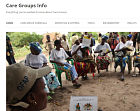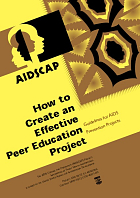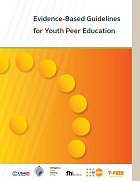Peer education is an approach in which groups of people that have something in common (such as adolescent girls or mothers of young children) educate, motivate, and support each other in the adoption of new behaviours. The following resources will help you to use this approach in your behaviour change programming. Let us know if you think that an important resource is missing.
Care Group Website
This website provides many useful resources on the use of the Care Group approach. A Care Group is a group of 10-15 volunteer, community-based educators who regularly meet together with project staff for training and supervision. Each volunteer is responsible for regularly visiting 10-15 of her neighbors, sharing what she has learned and facilitating behavior change at the household...
How to Create an Effective Peer Education Project
FHI
This handbook is intended to help development practitioners who 1) are planning a new peer education project; or 2) want to strengthen or energize ongoing projects. It is based on interviews with more than 200 managers, peer educators and peer beneficiaries in 10 countries. Although its main focus is on HIV/AIDS programs, it is useful also for a range of other interventions.
Evidence-Based Guidelines for Youth Peer Education
2010, FHI
The publication will help you develop new, high-quality peer education programs for young people ages 10 to 24 years or to improve existing programs. Although it focuses on peers working with young people to improve their sexual and reproductive health, these guidelines can be applied more broadly to other types of peer education programs as well.


